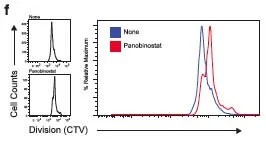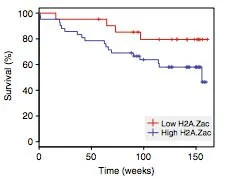Australian epigenetics research news Aug – Nov 2017
Recent Posts
Spotlight on: Melanie Eckersley-Maslin 25 November 2022
Spotlight on: Jessamy Tiffen 25 July 2022
ECR Spotlight on: Alex Woodworth 16 July 2022
Epigenetics 2022: Four weeks left for poster abstract submissions! 15 July 2022
Emma Whitelaw ECR Publication Award 30 June 2022
Epigenetics 2022 – Meet the speakers 17 June 2022
ECR Spotlight on: Kate Giles 31 May 2022
Spotlight on: Luciano Martelotto 30 May 2022
Epigenetics 2022 speakers announced 20 April 2022
Spotlight on: Hamish King 18 April 2022
ECR Spotlight on: William Schierding 6 April 2022
Spotlight on: Louise Bicknell 14 March 2022
Categories
News (57)
Opportunities (3)
Publications (7)
Spotlight on … (16)
World epi news (2)
Archived news
2022 (12)
2021 (9)
2020 (9)
2019 (1)
2018 (6)
2017 (6)
2016 (6)
2015 (17)
2014 (1)
by AEpiA| Nov 20, 2017 | News, Publications
We thought we’d share some brief highlights of Australian epigenetics publications over the last three months:
– Do you have any research news you would like to share with AEpiA members? Please email us about any recent publications, awards or events!
Extensive transcriptomic and epigenomic remodelling occurs during Arabidopsis thaliana germination From La Trobe University in Melbourne, Prof Whelan and team have published an insightful study that “reveals the complex dynamics and interactions of the transcriptome and epigenome during seed germination”. The study identifies the epigenomic and transcriptomic changes that Arabodpsis Thaliana seeds undergo as they transition from an embryo-like to vegetative seedling during germination. Further, by generating a transcription factor network model for germination, the authors identify known and novel regulatory factors that drive seed germination. The paper reveals extensive remodelling of the seed DNA methylome during this period of transformation. https://doi.org/10.1186/s13059-017-1302-3 Epigenetic targeting of Notch1 driven
transcription using the HDACi panobinostat is a potential therapy against T cell acute lymphoblastic leukemia In a joint effort by the laboratories of Prof Johnstone from the Peter MacCallum Cancer Centre and Dr Hawkins from The Walter and Eliza Hall Institute of Medical Research in Melbourne, Notch 1 signaling has been targeted as a novel therapeutic for T cell acute lymphoblastic leukemia (T-ALL). Using the notch driven T-ALL mouse model the authors investigate the therapeutic possibility of the histone deacetylase
inhibitor (HDACi) panobinostat. The study revealed that the drug was able to regulate T-ALL cellular proliferation, and that this was correlated with a loss of c-Myc expression in these cells. In vivo, Panobinostat treated mice had significantly increased survival compared to vehicle treated control leukemia mouse models. https://www.nature.com/articles/leu2017282
Grandmaternal smoking increases asthma risk in grandchildren: a nationwide Swedish cohort A collaborative effort between Umeå University in Sweden, the University of Melbourne and Murdoch Children’s Research Institute in Melbourne published a population-based study on grandmaternal smoking during pregnancy and the risk of asthma in grandchildren. Lodge et. al. interrogated prospectively collected data from the national Swedish registries to reveal that “children aged 1-6 years had an increased asthma risk if their grandmothers had smoked during pregnancy.” The study further confirmed that maternal smoking did not modify this relationship. https://doi.org/10.1111/cea.13031
H2A.Z and enhancers in prostate cancer In Nature Communications this month the group of Prof Susan Clark from the Garvan Institute of Medical Research in Sydney published on the role of the histone variant H2A.Z in enhancer activation in prostate cancer. Valdés-Mora et. al. reveal that an increased level of H2A.Z acetylation correlates with poor prognosis in prostate cancer samples. Using prostate cancer cell line models the study shows that androgen receptor associated enhancers require the incorporation of acetylated H2A.Z for activation and that H2A.Zac is mis-localized at active enhancers in cancer.
The study further demonstrates that acetylation of H2A.Z nucleosomes is associated with ectopic gene activation and epigenetic remodeling of cancer-specific regulatory elements. Collectively the study demonstrates a novel contribution of H2A.Zac in the activation of newly formed enhancers in prostate cancer.
DNA methylation in blood from neonatal screening cards and the association with BMI and insulin sensitivity in early childhood From CSIRO in North Ryde, Sydney Dr Molloy and colleagues address the question of whether “…epigenetic marks present at birth may predict an individual’s future risk of obesity and type 2 diabetes”. For this van Dijk et. al. studied epigenetic marks from blood of newborn children and assessed whether they were associated with body mass index (BMI) and insulin sensitivity in these children later in childhood.
In support of growing evidence on the role of epigenetics in programming of metabolic health, the study identified a number of DNA methylation regions at birth that were associated with obesity or insulin sensitivity measurements in childhood. The study also revealed associations between DNA methylation, maternal smoking and birth weight. https://www.nature.com/articles/ijo2017228








